A Practical Guide to Cybersecurity Compliance for Small Businesses
Tuesday, November 5, 2024

In today’s digital world, small businesses are handling more sensitive data than ever before, from customer payment information to healthcare records. But with great data comes great responsibility, and that’s where cybersecurity compliance comes in. Whether you're aware of it or not, your business might be subject to regulations that require specific cybersecurity measures—and failing to comply can lead to costly penalties, data breaches, and loss of customer trust.
In this post, we’ll explore the importance of cybersecurity compliance for small businesses, break down some key regulations, and provide practical steps to help ensure your business stays compliant.
Key Cybersecurity Regulations for Small Businesses
Many small businesses assume that cybersecurity regulations are only a concern for large corporations. However, businesses of all sizes can be held accountable for how they handle and protect sensitive data. Here are some of the most common regulations you may need to comply with:
1. GDPR (General Data Protection Regulation)
If your business collects or processes personal data from EU citizens, even if you’re based outside of Europe, you are required to comply with the GDPR. This regulation ensures that businesses protect the privacy and personal data of EU residents. Non-compliance can result in hefty fines of up to €20 million or 4% of annual global turnover—whichever is higher.
2. HIPAA (Health Insurance Portability and Accountability Act)
Businesses that deal with health-related information, such as medical clinics, therapists, or even fitness apps, must comply with HIPAA regulations. HIPAA requires strict data protection standards for safeguarding health information. Non-compliance can result in fines ranging from $100 to $50,000 per violation, depending on the level of negligence.
3. PCI-DSS (Payment Card Industry Data Security Standard)
If your business handles credit card payments, you need to comply with PCI-DSS regulations. These standards are designed to ensure that all companies that process, store, or transmit credit card information maintain a secure environment. Failing to comply can result in penalties ranging from $5,000 to $100,000 per month, depending on the severity of the breach.
Why It Matters: Non-compliance with these regulations can lead to significant financial penalties, lawsuits, and reputational damage. But beyond avoiding fines, adhering to these standards shows customers and partners that your business takes data protection seriously, building trust in your brand.
Steps to Ensure Cybersecurity Compliance
Maintaining compliance may sound overwhelming, but it can be managed with a clear strategy. Here are some key steps to help your small business meet cybersecurity regulations:
1. Data Encryption
To ensure compliance with most regulations, your sensitive data—whether it’s personal, payment, or health-related—needs to be encrypted. Encryption scrambles the data, making it unreadable without the proper decryption key. This ensures that even if data is intercepted or stolen, it can’t be used by unauthorized parties.
Example: Imagine your business handles sensitive customer data, like credit card information. Encrypting this data ensures that even if a hacker breaches your system, they won’t be able to decipher or use the stolen information without the decryption key.
2. Access Controls
Not everyone in your business needs access to sensitive data. Implement strict access controls to ensure that only authorized personnel can access critical information. This limits the number of entry points a hacker could exploit, minimizing the risk of a breach.
Example: Let’s say you operate a healthcare clinic. Using access controls ensures that only medical staff, not administrative personnel, can view patient health records, reducing the risk of accidental or malicious data exposure.
3. Regular Audits and Risk Assessments
Cybersecurity isn’t a set-it-and-forget-it process. Regular audits and risk assessments help you identify potential vulnerabilities in your system and ensure your compliance measures are up to date. These assessments should review how data is being stored, who has access to it, and whether your current cybersecurity tools are adequate for protecting that data.
4. Security Policies
Your business should have clear, documented cybersecurity policies in place. These policies should outline how sensitive information is handled, what steps need to be taken to protect that data, and what procedures to follow in the event of a breach. Make sure employees are trained on these policies and that they are updated regularly to comply with evolving regulations.
How Lockwell Supports Cybersecurity Compliance
For small businesses, navigating cybersecurity compliance can feel overwhelming. Regulations like NIST, GDPR, and HIPAA bring essential standards for safeguarding sensitive data, but understanding and implementing these standards can be challenging. Lockwell simplifies the compliance journey by providing small businesses with the tools and guidance needed to meet some of these critical requirements.
Understanding NIST Compliance
The National Institute of Standards and Technology (NIST) provides a set of cybersecurity guidelines aimed at helping organizations manage and reduce cybersecurity risks. NIST’s standards are widely recognized and adopted across various industries as a strong foundation for cybersecurity practices. For small businesses, adhering to NIST guidelines can be a proactive way to protect their operations, maintain customer trust, and ensure readiness for other regulatory requirements.
Some key areas of NIST guidelines include:
Access Control: Managing who has access to your systems and data.
Risk Assessment: Identifying and mitigating potential risks to business systems.
Continuous Monitoring: Maintaining ongoing oversight of your security systems to catch any issues early.
Lockwell offers a comprehensive suite of tools and expert support to help small businesses achieve these standards in an accessible, straightforward way.
How Lockwell Helps Small Businesses Achieve NIST Compliance
1. NIST-Compliant Security Policies
Lockwell provides customizable, NIST-compliant cybersecurity policies tailored specifically to the needs of small businesses. Our policies cover essential practices such as data access, encryption, and incident response, aligning with the NIST framework to help your business protect sensitive data and reduce risk.
Our team guides you through the setup process to ensure these policies are not only robust but also easy for your employees to understand and follow. We prioritize clear, actionable steps so that compliance becomes part of your team’s daily practices rather than a complex checklist.
2. Integrated Compliance Tools and Monitoring
Achieving compliance isn’t a one-time task; it’s an ongoing process. Lockwell’s platform includes built-in tools for tracking and reporting on your business’s compliance status, so you always know where you stand. Our monitoring tools continuously assess your cybersecurity posture, ensuring your systems remain aligned with NIST standards and alerting you to any potential compliance gaps.
By adopting Lockwell’s NIST-aligned policies and continuous monitoring, your business gains peace of mind, knowing that you’re not only meeting essential cybersecurity standards but also actively defending against cyber threats.
Conclusion
Cybersecurity compliance isn’t just about avoiding fines—it’s about protecting your business, your customers, and your reputation. By following encryption best practices, implementing strict access controls, and regularly auditing your security measures, you can stay compliant and safeguard your sensitive data.
With Lockwell’s tailored solutions for small businesses, you don’t have to navigate compliance alone. Our tools ensure that your business meets industry regulations, providing continuous monitoring and policy support to help you stay secure and compliant.













